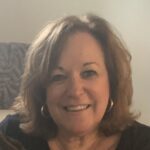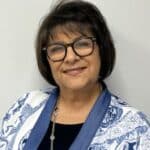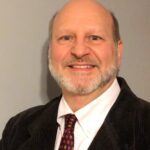Volume 37 Number 4 | August 2023
This article presents perspectives of professionals who are fortunate to witness the journey individuals travel as they enter a laboratory science educational program as students, continue to clinical experiences, then careers, and subsequently go on to become a member of the ASCLS community.
The Community of a Program
Maddie Josephs, MS, MLS(ASCP)

The development, from a group of virtual strangers to a network of friends who come together to support one another is both satisfying and a relief to faculty members. We worry about our students who struggle and who may not feel comfortable seeking help from faculty, so we are heartened to see these students come together to build this network of support. This new community develops out of a shared commitment to the program, and many times, by the end of the program, lifelong friendships develop.
I am always in awe of students who successfully complete a program of study, many times while working full- or part-time or taking care of their families; and for some, they are doing both! The sense of community is so important as it serves to bolster their confidence and realize that they are not alone in this endeavor. As with any community, there is one member who is good with technology, one who writes well, one who is artistic, etc. I’ve seen the best flowcharts, drawings, and study guides that are shared within a cohort. Everyone plays a role and contributes to the success of the group.
We, as faculty, often suggest to students that if they are struggling with the material to certainly reach out to us anytime. We also share with them that we’ve seen an increased level of student success when they form study groups. But when a community like this forms organically, it’s a beautiful thing.
Maddie Josephs is Chair of the Allied and Rehabilitative Health Department at the Community College of Rhode Island.
The Community of the Laboratory
Leslie Martineau, MHA, MS, MLS(ASCP), SC

Our laboratory leaders strive to develop a welcoming and nurturing laboratory environment for new employees and for existing staff. Our laboratory environment is our home away from home. Our staff typically spend 40 hours per week working, but with today’s workforce challenges, many are logging closer to 50 hours weekly. This community of people not only work together but socialize together. They share their thoughts, feelings, and life stories. Sometimes we laugh. Sometimes we cry. We find comfort and strength in these relationships as we perform the important and, at times, stressful work we do.
During this time of transition and trepidation, we must also remember to celebrate. We need to especially honor the happy times, including weddings, babies, and graduations! To help them feel a part of our growing laboratory community, it is important to incorporate the next generation of laboratorians in our celebrations. No matter where the next stage of life takes them, their internship experiences and skills will provide them with a wonderful foundation in their future roles.
Leslie Martineau is Director of Laboratory Services at CharterCARE Health Partners in Rhode Island.
The ASCLS Community
Frank Scarano, PhD, MLT(ASCP)MCM, ASCLS Board of Directors

Through ASCLS at the local, regional, and national levels, I made friends and felt community from the first meeting I attended. Working together toward a common goal, learning as a group, appreciating the contributions of others, and doing our part individually are all weaved into the feeling of community. Having others to share experiences, ideas, goals, and simple companionship creates a rewarding community that can build and grow. Finding others with whom we can comfortably commiserate and celebrate, laugh and cry, and talk and listen truly enriches our lives.
“Working together toward a common goal, learning as a group, appreciating the contributions of others, and doing our part individually are all weaved into the feeling of community.”
I have made many long-time friends through ASCLS at the local level, throughout the region, and across the country. Even though we might only see some of our friends from across the country once a year at the Joint Annual Meeting (JAM), feeling a sense of community is an important and incredibly rewarding part of membership in our professional society. It is this awareness of community that I wish for students, new graduates, and all medical laboratory professionals.
Frank Scarano is Professor and Chairperson for the Department of Medical Laboratory Science at UMass-Dartmouth, Massachusetts.